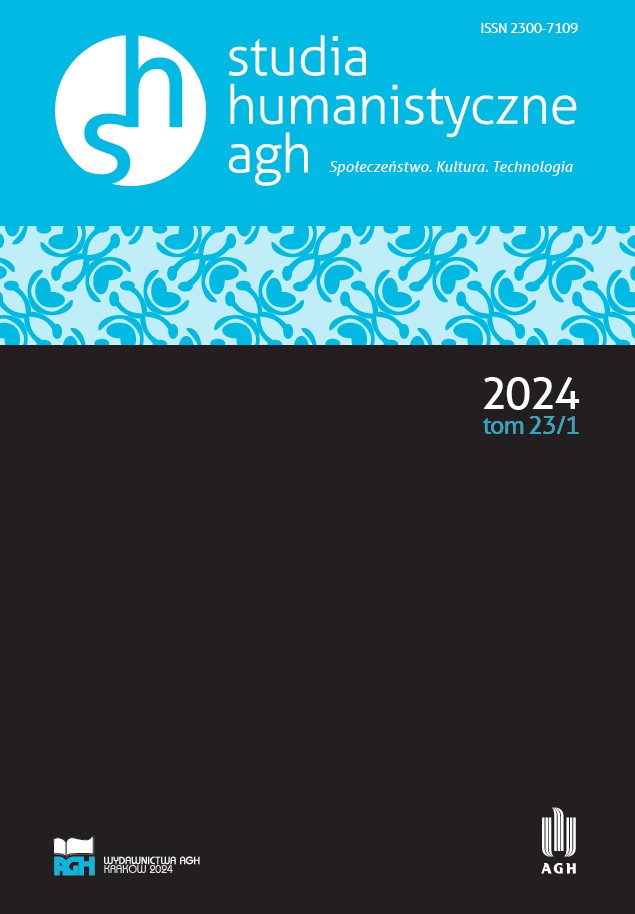Mythologization of Slavic Culture in the Works of Polish Activist In Cieszyn Silesia, Paweł Stalmach (1824–1891)
DOI:
https://doi.org/10.7494/human.2024.23.1.6313Keywords:
Cieszyn, mythologization, Cieszyn Silesia, Paweł Stalmach, Slavic regionAbstract
The aim of this article is to analyze and interpret Cieszymir and Księgi Rodu Słowiańskiego, texts by Paweł Stalmach (1824–1891), a Polish national activist in Cieszyn Silesia. Using gathered data, traditions, and legends, Stalmach presents a mythologized culture and religion of the Slavs, as well as the history of Cieszyn and Cieszyn Silesia. The reflection also concerns the role that Cieszymir and Księgi Rodu Słowiańskiego in the author’s socio-political activities. The analysis was conducted based on the narrative concepts of Hayden White and Frank Ankersmit, as well as the mechanisms of mythologization defined by Jerzy Topolski (universalization, mystification, deification or glorification, stereotyping, and prophesying). The picture of the past presented by Stalmach contains almost all mechanisms of mythologization. Cieszymir and Księgi Rodu Słowiańskiego present an extremely positive image of the Slavs. The texts were part of Stalmach’s socio-political activities aimed at creating a local Polish community in Cieszyn Silesia.
Downloads
Downloads
Published
Issue
Section
License
Copyright (c) 2024 © Wydawnictwa AGH, Kraków 2024, Creative Commons CC-BY 4.0 License

This work is licensed under a Creative Commons Attribution 4.0 International License.
Authors who publish with this journal agree to the following terms:1) Authors retain copyright and grant the journal right of first publication with the work simultaneously licensed under a Creative Commons Attribution License that allows others to share the work with an acknowledgement of the work's authorship and initial publication in this journal.
2) Authors are able to enter into separate, additional contractual arrangements for the non-exclusive distribution of the journal's published version of the work (e.g., post it to an institutional repository or publish it in a book), with an acknowledgement of its initial publication in this journal.
3) Authors are permitted and encouraged to post their work online (e.g., in institutional repositories or on their website) prior to and during the submission process, as it can lead to productive exchanges, as well as earlier and greater citation of published work (See The Effect of Open Access).
Accepted 2024-05-23
Published 2024-06-30



